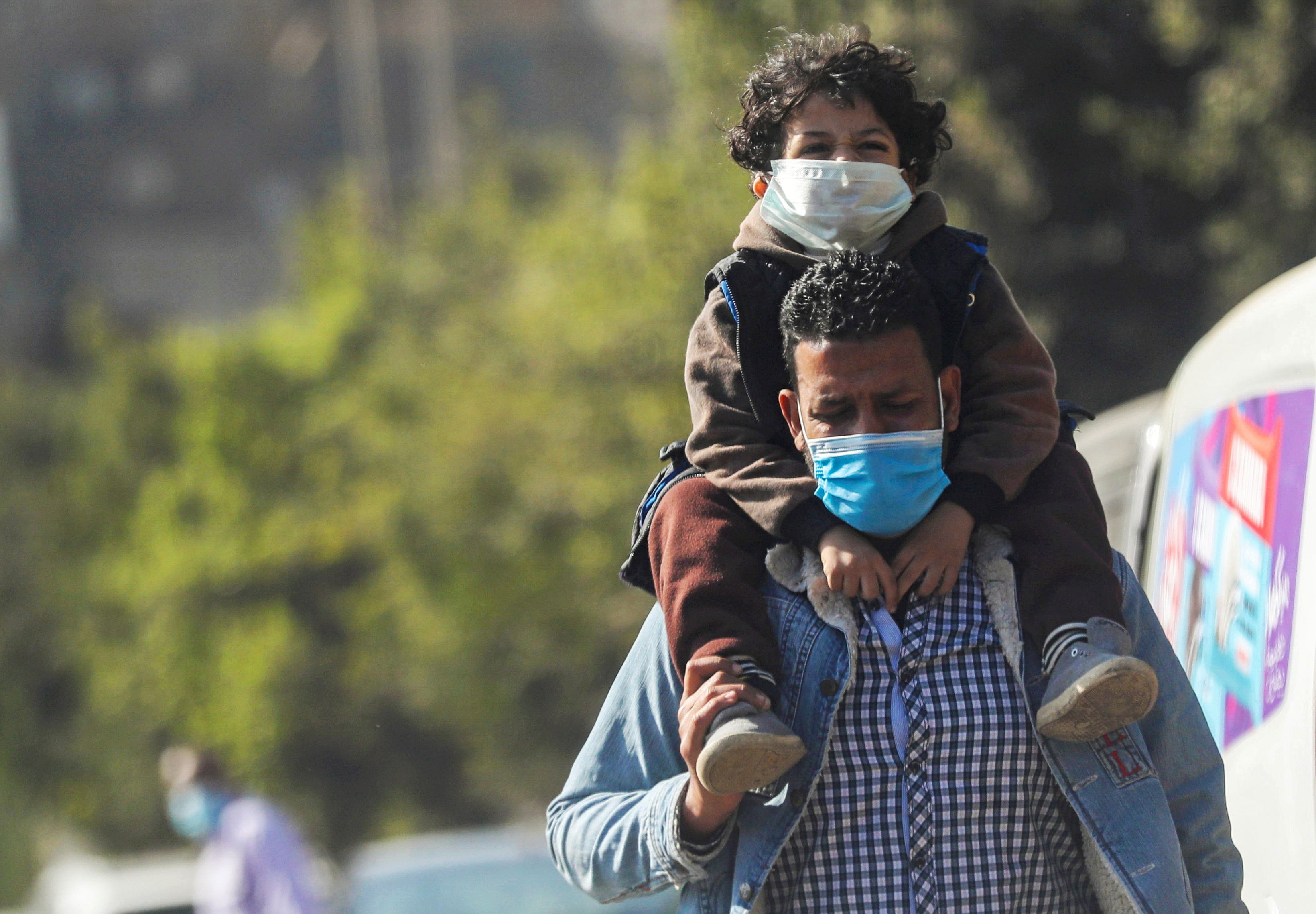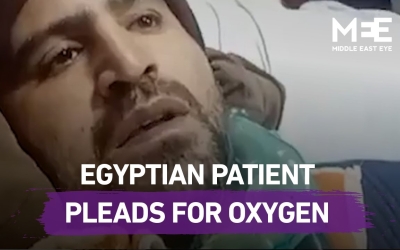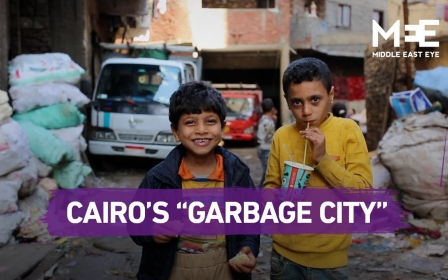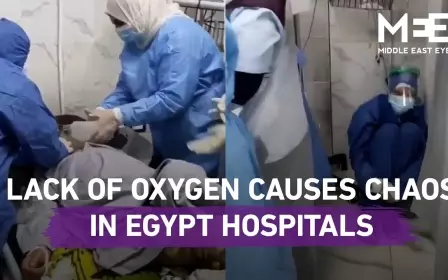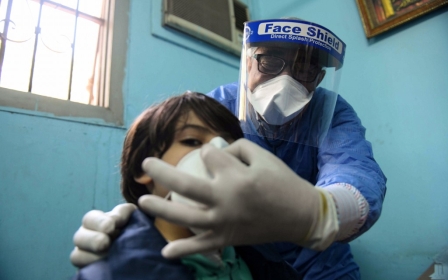Sisi orders Egypt's doctors to see Covid-19 patients at home in 'dangerous campaign'
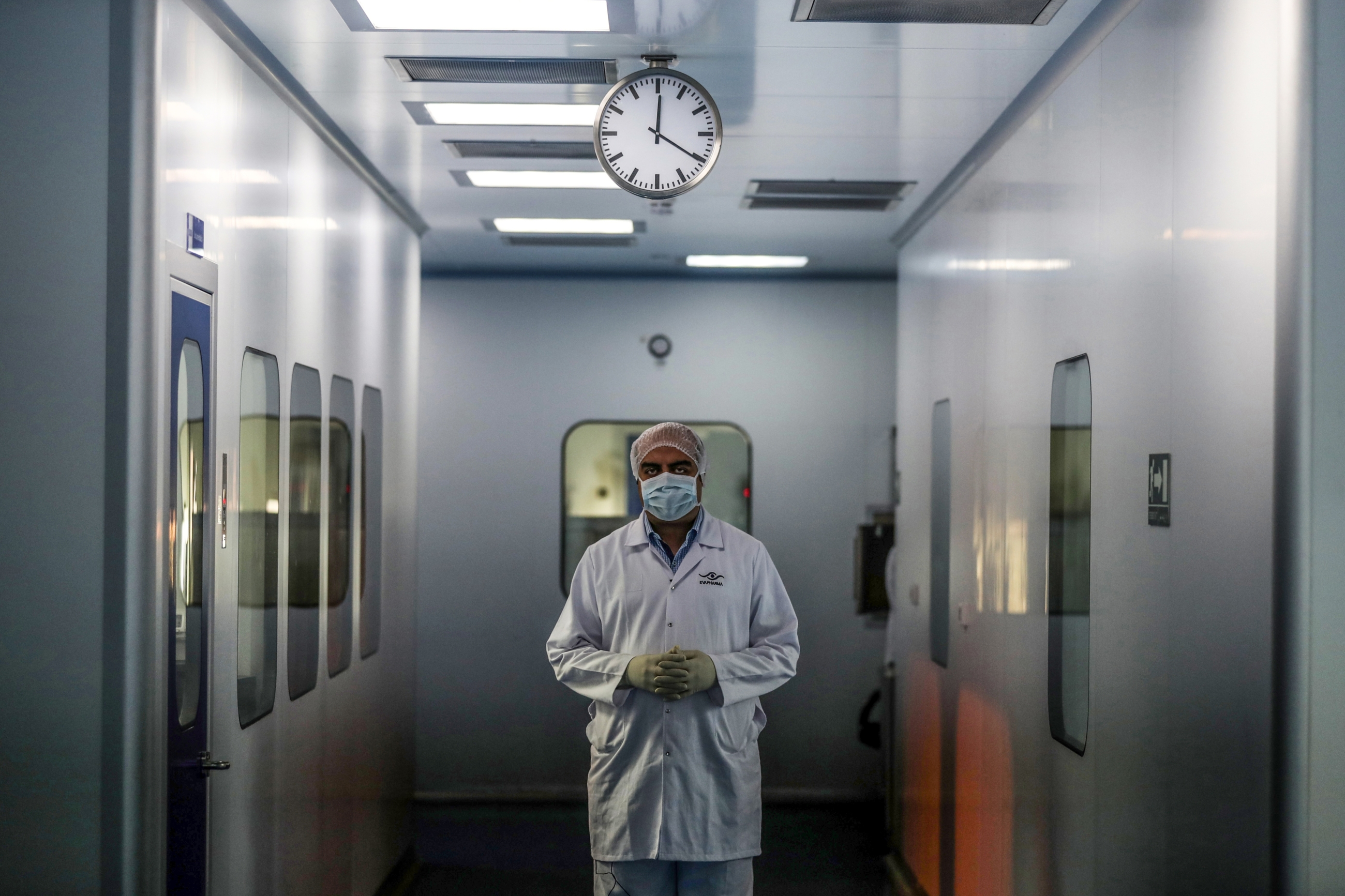
Egypt's health authorities have come under fire for launching a new campaign that will likely put the lives of thousands of doctors and other healthcare workers in danger.
The initiative, launched by the Ministry of Health and Population earlier this month, will require doctors and health service providers to visit Covid-19 patients at home to offer them care.
Minister of Health and Population Hala Zayed said the doctors would offer care to those isolating themselves or receiving treatment for Covid-19 at home to check their temperature and oxygen levels.
The doctors, she said, would make sure that patients would be transferred to hospitals if their conditions moved from moderate to severe.
The campaign is the brainchild of Egyptian President Abdel Fattah el-Sisi, whose country has been struggling to keep a lid on coronavirus infections and deaths.
New MEE newsletter: Jerusalem Dispatch
Sign up to get the latest insights and analysis on Israel-Palestine, alongside Turkey Unpacked and other MEE newsletters
Zayed said the campaign is a serious bid to curb human losses because of the pandemic.
Danger zone
Nevertheless, there are fears among the nation's doctors and health service workers that the initiative will put them at risk by forcing them to enter the homes of Covid-19 patients.
"This will make the doctors and health service workers prone to infection, especially if the patients and their families are not taking enough measures to protect those going into their homes," leading pulmonologist Hesham Abul Nasr told Middle East Eye.
Such fears have found their root in the number of deaths among Egypt's doctors and health service workers, especially those working on the front line of the fight against Covid-19.
So far, 328 medical doctors have succumbed to the disease, including, this month alone, a pediatrician who died last weekend, a specialist in endothelial diseases who died on 20 January and 10 doctors who lost their lives on 11 and 12 January.
According to Egypt's Medical Association, an independent doctors' guild, dozens of other doctors have died in the past months before they even knew they had contracted Covid-19.
Reports have also revealed that many doctors and healthcare workers are not properly equipped with personal protective equipment (PPE).
The Medical Association does not report deaths among nurses or other workers at the hospitals.
The growing number of deaths among doctors and health service workers has led to frustration, and the new campaign has only added fuel to the anger felt in hospital wards.
The Medical Association said there is no other country where doctors are forced to visit Covid-19 patients at home.
"This is why we say the campaign is dangerous," Osama Abdel Hay, the secretary-general of the association, told MEE.
Under the strain
The campaign comes as Egypt's hospitals are being overwhelmed by the sheer number of coronavirus patients.
Hundreds of state-run hospitals offer free treatment for Covid-19 patients, but, as hospitals reach full capacity, only those with good contacts can be admitted.
'The hospitals may not be able to present services to patients if doctors keep dying'
- Nagwa al-Shafie, Medical Association member
With no space in intensive care units, new patients are given a list of medicines to buy and are asked to return home for isolation and treatment.
Video footage circulating online earlier this month showed that even coronavirus patients in critical condition are being turned away from hospital, due to a lack of oxygen tanks.
The Ministry of Health and Population said it had introduced the home isolation and treatment mechanism to reduce pressure on the hospitals.
"Most of the patients are at home because there is no place at the hospitals," Nagwa al-Shafie, a member of the board of the Medical Association, told MEE.
"This could be dangerous if the patients' conditions deteriorate with no chance of hospitalisation."
This also creates a risky situation where infections and deaths could rise dramatically, even when they do not do not appear in official records.
Zayed conceded recently that those receiving treatment at hospitals are not more than 15 percent of overall Covid-19 cases.
In a country of over 100 million people, more than 160,400 people have so far contracted Covid-19 in Egypt, and more than 8,850 have died, according to the government.
However, health officials say that due to the relatively low rate of coronavirus testing and the exclusion of private test results, the actual numbers of infections and deaths are likely significantly higher.
The daily rate of infections keeps going down in official records, to below 800 this week from just above 1,400 at the start of the year. Meanwhile, daily deaths have remained effectively stable in the 50s.
Public anger
The failure of hospitals to admit more patients has also caused public anger.
The general feeling among the public is that they have been left high and dry by a health system that has no room for those falling seriously ill or battling death.
A shipment of the Chinese Sinopharm vaccine was received on 12 December from the United Arab Emirates (UAE).
Zayed said the shipment, and others that would arrive later, would be used in inoculating frontline health service workers, and then elderly Egyptians and those with chronic diseases.
A month-and-a-half later, however, the vaccination process had still not started, leading to speculation over the reasons for the delay.
"Something is still incomprehensible about the vaccines," Ziad Bahaa-Eldin, a leading economist and former minister of investment, wrote on Facebook.
"If the vaccines are available - like the Ministry of Health says - why has it not started vaccinating priority categories, namely the doctors, nurses and those above 70 and 80 years of age?"
On Saturday, Sisi said Egypt would begin a mass Covid-19 vaccination campaign on Sunday, starting with medical staff.
Health authorities say they will buy a variety of vaccines, in addition to the Chinese vaccine, including those of US pharmaceutical corporations Pfizer and Moderna.
Shortage of doctors
The failure of Egyptian authorities to immunise frontline health service workers against the disease is being blamed as contributing to the rise in deaths among them.
Addressing fears over the new home-visit campaign, Hamdi Abulkheir, a member of the Committee on Health at the House of Representatives, the lower chamber of parliament, said: "The fact is that there are not enough doctors to treat patients at the hospitals.
"Where will the minister get doctors to treat patients at home from?"
The initiative has opened the door to accusations that the authorities are not doing enough in general to protect doctors.
Until recently, doctors were not allowed to undergo PCR tests to check if they had contracted the disease from their patients but had yet to develop symptoms.
Together with a lack of protection and care, the financial conditions of doctors are an additional reason for the anger among Egyptian medics, especially those at the heart of the national response to Covid-19.
This is has caused doctors to leave Egypt in their thousands, according to a local research group, which said earlier this month that more than 7,000 doctors have left Egypt altogether since the first wave of Covid-19 early last year.
This, medical professionals say, should encourage health authorities to protect the doctors, not put their lives in more danger.
"The hospitals may not be able to present services to patients if doctors keep dying," said Medical Association board member Shafie. "This threatens the whole health system."
Middle East Eye delivers independent and unrivalled coverage and analysis of the Middle East, North Africa and beyond. To learn more about republishing this content and the associated fees, please fill out this form. More about MEE can be found here.



